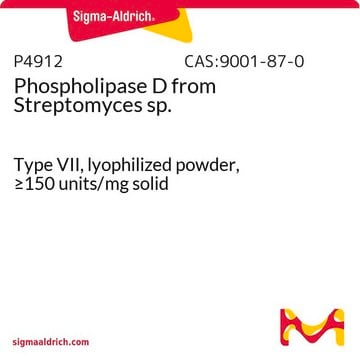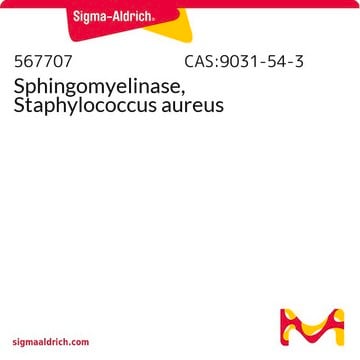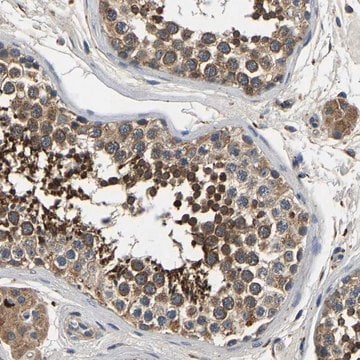S9396
Sphingomyelinase from Bacillus cereus
buffered aqueous glycerol solution, ≥100 units/mg protein (Lowry)
Synonym(s):
Sphingomyelin choline phosphohydrolase, Sphingomyelin phosphodiesterase
About This Item
Recommended Products
form
buffered aqueous glycerol solution
Quality Level
specific activity
≥100 units/mg protein (Lowry)
mol wt
34.2 kDa
foreign activity
Phospholipase C ≤1%
storage temp.
2-8°C
Gene Information
Bacillus cereus ATCC 10987 ... spH(2751530)
Looking for similar products? Visit Product Comparison Guide
General description
Application
Biochem/physiol Actions
Unit Definition
Physical form
Storage Class Code
10 - Combustible liquids
WGK
WGK 3
Flash Point(F)
Not applicable
Flash Point(C)
Not applicable
Certificates of Analysis (COA)
Search for Certificates of Analysis (COA) by entering the products Lot/Batch Number. Lot and Batch Numbers can be found on a product’s label following the words ‘Lot’ or ‘Batch’.
Already Own This Product?
Find documentation for the products that you have recently purchased in the Document Library.
Our team of scientists has experience in all areas of research including Life Science, Material Science, Chemical Synthesis, Chromatography, Analytical and many others.
Contact Technical Service







